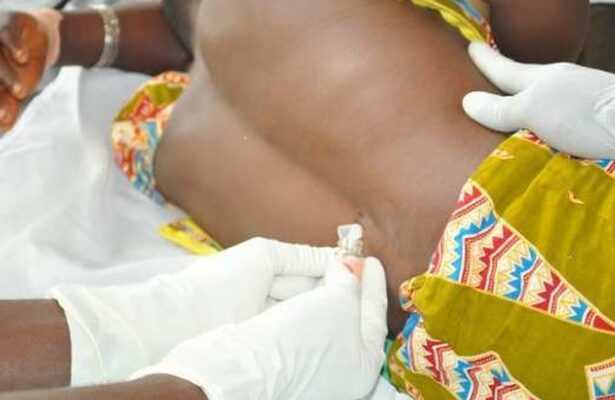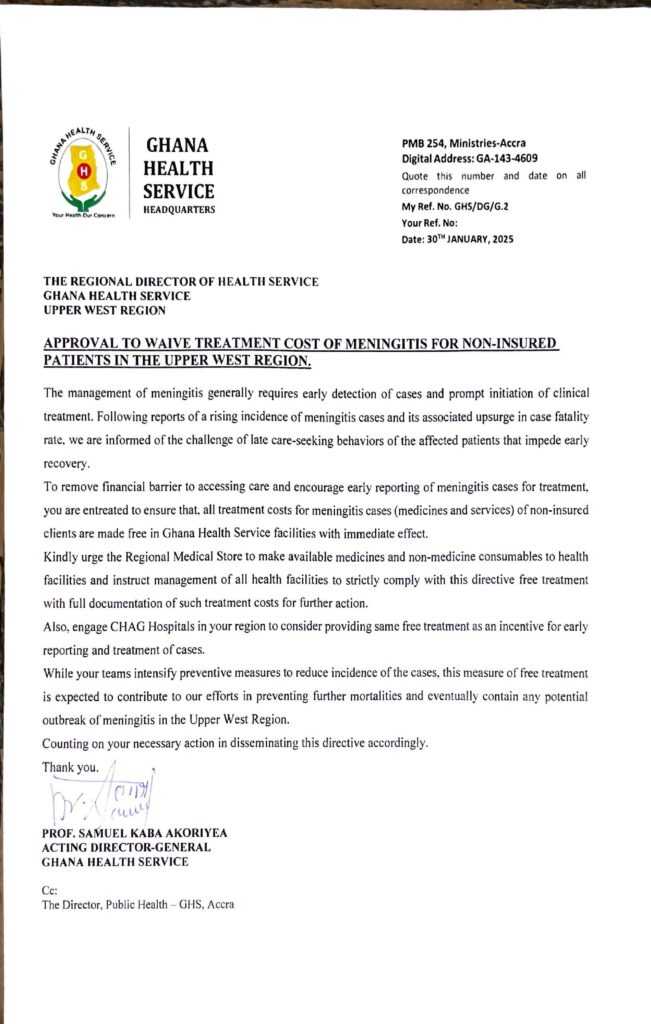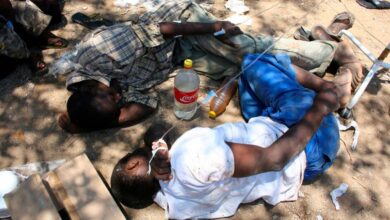
In a significant move to combat the rising cases of cerebrospinal meningitis in the Upper West Region, the Ghana Health Service (GHS) has announced free treatment for uninsured patients effective immediately. The directive, issued by the Acting Director-General of the GHS, Prof. Samuel Kaba Akoriyea, was detailed in a letter dated January 30, 2025.
According to the directive, all Ghana Health Service facilities in the region are to waive treatment costs for uninsured patients. The free treatment package will cover medicines and healthcare services, ensuring that financial constraints do not hinder early diagnosis and treatment.
“To eliminate financial barriers to accessing care and encourage prompt reporting of meningitis cases, all treatment costs, including medicines and services, for uninsured patients should be made free at Ghana Health Service facilities with immediate effect,” the letter stated.
Strict Compliance and Resource Allocation
Prof. Akoriyea emphasized the need for strict compliance, urging health facilities to fully document treatment costs for future action. He also directed the Regional Medical Store to ensure the availability of medicines and other consumables to health facilities in the region to facilitate the smooth implementation of the directive.
Rising Cases Prompt Swift Action
This intervention comes on the back of alarming statistics from the region. As of January 27, 2025, the Upper West Region recorded 17 suspected cases of cerebrospinal meningitis, including six confirmed deaths. Dr. Collins Boateng Danquah, Deputy Director of Public Health, revealed that the cases were reported across six districts, with the highest incidences in the Nadowli/Kaleo District and Nandom Municipality.
The Deadly Impact of Cerebrospinal Meningitis
Cerebrospinal meningitis is a life-threatening disease that predominantly affects areas within the “meningitis belt,” which includes Ghana’s Upper West, Upper East, and Northern regions. The disease, which typically peaks between October and the dry season, often claims numerous lives due to its swift progression and high fatality rate.
Government’s Commitment to Public Health
The free treatment policy underscores the government’s commitment to safeguarding public health, particularly in vulnerable regions. By removing financial barriers, health authorities hope to encourage residents to report symptoms early, thereby reducing the risk of fatalities.
Residents in the affected areas are urged to remain vigilant, report symptoms promptly, and adhere to preventive measures as the region battles the outbreak.

Story by: Mercy Addai Turkson



